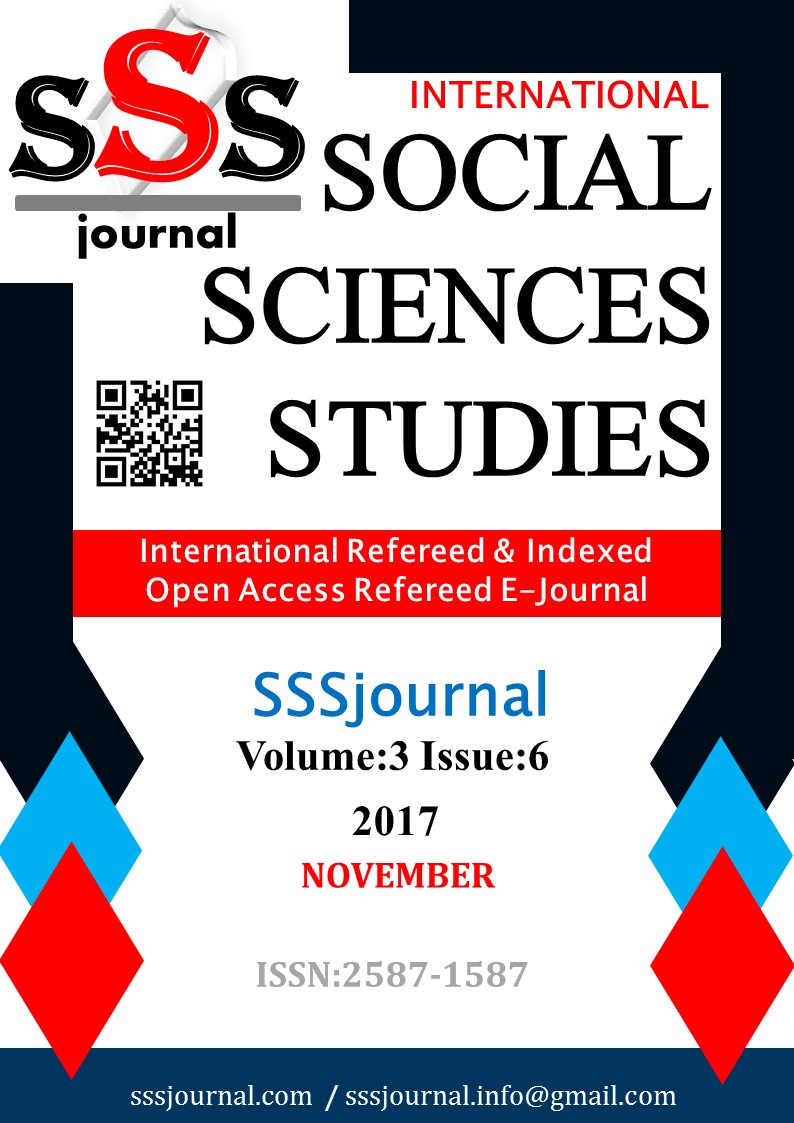EXAMINATION OF THE ETHICAL RULES FOLLOWED BY THE MEMBERS OF THE ACCOUNTING PROFESSION CONSIDERING FOUR HOLY BOOKS AND THE IFAC CRITERIA
Author :
Abstract
ABSTRACT In the present day, the world has globalized to become a big village. All types of information is more accessible yet it is harder to access individuals. With these new features of the world, human beings are no longer seen as simply a factor of production. As societies and institutions increasingly adopt a more comprehensive approach towards humankind, whereby human beings are recognized as social creatures, endowed with material and spiritual aspects and who think, feel, produce and discover, the ethical attitudes governing the idea of virtue in professional life will be able to be standardized more rapidly. Ideally, within professional life, an employee who has adopted a set of ethical rules, shares the common moral values with other employees, is committed to diligently following the ethical rules and is capable of reflecting the set of ethical rules as a governing philosophy in their professional life, will contribute to the welfare of all professional stakeholders, including themselves, the employer, the state, the society and the clients. Once this cyclical system is established, the members of a profession will indirectly provide their own welfare, as they are also included in that cycle. This study attempts to explain how four holy books, namely, the Torah, the Bible, the Psalms and the Quran, all of which have substantially influenced society culturally, socially, economically and in many other ways from the very early stages of human history and have been accepted as moral guides by people from the west to the east, serve to instruct and guide people about the ethical behaviors informing human nature. To help answer this question, a comparative analysis is conducted between the explanations provided in these books and the ethical standards governing the International Federation of Accountants (IFAC) and today's professional ethics in accounting, particularly considering the ethical behaviors expected from the members of the accounting profession from past to present. The results of this study shall serve to contribute to professional ethics and ethical training.
Keywords
Abstract
ABSTRACT In the present day, the world has globalized to become a big village. All types of information is more accessible yet it is harder to access individuals. With these new features of the world, human beings are no longer seen as simply a factor of production. As societies and institutions increasingly adopt a more comprehensive approach towards humankind, whereby human beings are recognized as social creatures, endowed with material and spiritual aspects and who think, feel, produce and discover, the ethical attitudes governing the idea of virtue in professional life will be able to be standardized more rapidly. Ideally, within professional life, an employee who has adopted a set of ethical rules, shares the common moral values with other employees, is committed to diligently following the ethical rules and is capable of reflecting the set of ethical rules as a governing philosophy in their professional life, will contribute to the welfare of all professional stakeholders, including themselves, the employer, the state, the society and the clients. Once this cyclical system is established, the members of a profession will indirectly provide their own welfare, as they are also included in that cycle. This study attempts to explain how four holy books, namely, the Torah, the Bible, the Psalms and the Quran, all of which have substantially influenced society culturally, socially, economically and in many other ways from the very early stages of human history and have been accepted as moral guides by people from the west to the east, serve to instruct and guide people about the ethical behaviors informing human nature. To help answer this question, a comparative analysis is conducted between the explanations provided in these books and the ethical standards governing the International Federation of Accountants (IFAC) and today's professional ethics in accounting, particularly considering the ethical behaviors expected from the members of the accounting profession from past to present. The results of this study shall serve to contribute to professional ethics and ethical training.
Keywords
- Baydar,Tülay( 2004 )“Yönetim Etiği Açısından İngiltere’deki Kamu Yönetimi Uygulamaları”, Master Tezi :
- Baydar,Tülay( 2004 )“Yönetim Etiği Açısından İngiltere’deki Kamu Yönetimi Uygulamaları”, Master Tezi : 15, Ankara,
- Bayraktaroğlu Serkan ve Ersoy yılmaz S, (2012). “İş Ahlakı Dergisi Turkish Journal of Business Ethics” Kasım, Volume 5, Issue 10, s. pp. 117-148.
- Güçlü, Abdülbaki, Uzun, Erkan, Uzun, Serkan, Yolsal, Ü. Hüsrev (2008)“Felsefe Sözlüğü”, Bilim ve Sanat Yayınları :501, Ertem Matbaası, Ankara,
- İncil (2012), “Yakup’un Mektubu”, Kitab-ı Mukaddes Yayınları: 405, İstanbul.
- İyi, Sevgi ( 2012) “Etik”, Anadolu Üniversitesi Yayınları Yayın, No:2356:5, Eskişehir, Haziran.
- Kuran-ı Kerim(2014), Haz. Elmalı, H. , Dumlu, Ö., Bakara Suresi, 35. Ayet Taha Suresi,120-121. Ayet: 7,288, Ensar Yayınevi, İstanbul.
- Özdemir, Süleyman (2009), “Günümüz Türkiye’sinde Akademik İş Ahlakı Çalışmalarına Genel Bakış”, İstanbul Ticaret Odası Yayınları, Yayın no:23: 303, İnkılap Kitabevi, İstanbul,
- Platon, (2014),“Sokrates Savunması”, Haz. Ahmet Cevizci: 40, Say Yayınları, İstanbul.
- Selvi, Yakup (2002), “Uluslararası Muhasebeciler Federasyonunun Finansal ve Yönetim Muhasebesi Komitesi’nin Sydney Toplantısından Notlar” :1, İstanbul.
- Tevrat (2011), “Eski Antlaşma”, Yaratılış/4/1, 4/2,4/3, 4/4, 4/5, 4/6, 4/7, 4/8, s.4-5, Kitabı Mukaddes Yayınları, İstanbul.
- TÜRMOB, (2013), ”Muhasebe Meslek Mensupları İçin Etik El Kitabı” Çevirmenler: Öztürk, Yıldız. Türker, İpek. Biçer, Ali, Altuğ. Gündoğdu, Seher. TÜRMOB Yayınları Yayın NO: 457: 21-30, Ankara.
- Ünsal, Ahmet, (2009). “Muhasebe Etik Eğitim Sistem Bileşenlerinde Sürekli Etkin Eğitim” Selçuk Üniversitesi Sosyal Bilimler Enstitüsü Dergisi, Sayı 22, pp. 409-422.
- Zebur (2013), “Mezmurlar”, Kitab-ı Mukaddes Şirketi: 3, İstanbul.





